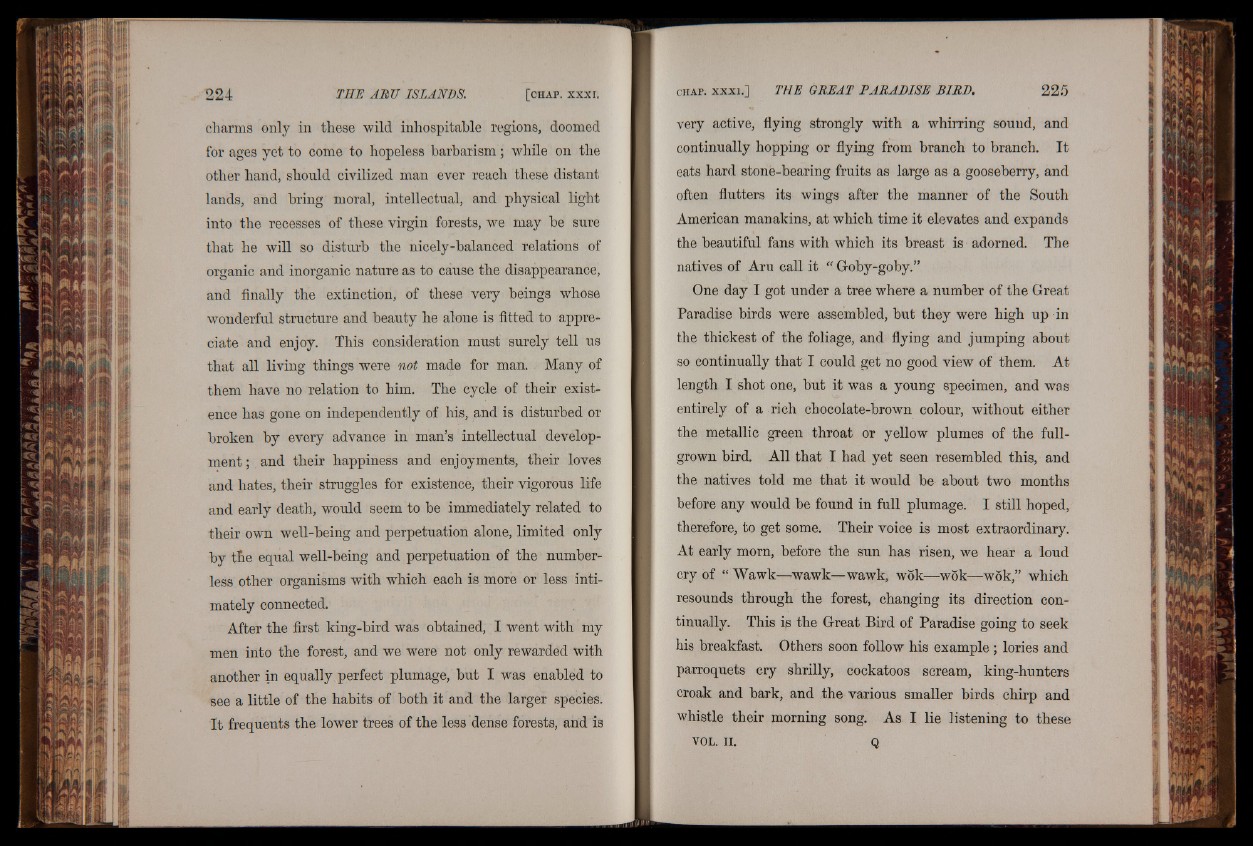
charms only in these wild inhospitable regions, doomed
for ages yet to come to hopeless barbarism; while on the
other hand, should civilized man ever reach these distant
lands, and bring moral, intellectual, and physical light
into the recesses of these virgin forests, we may be sure
that he will so disturb the nicely-balanced relations of
organic and inorganic nature as to cause the disappearance,
and finally the extinction, of these very beings whose
wonderful structure and beauty he alone is fitted to appreciate
and enjoy. This consideration must surely tell us
that all living things were not made for man. Many of
them have no relation to him. The cycle of their existence
has gone on independently of his, and is disturbed or
broken by every advance in man’s intellectual development;
and their happiness and enjoyments, their loves
and hates, their struggles for existence, their vigorous life
and early death, would seem to be immediately related to
their own well-being and perpetuation alone, limited only
by the equal well-being and perpetuation of the numberless
other organisms with which each is more or less intimately
connected.
After the first king-bird was obtained, I went with my
men into the forest, and we were not only rewarded with
another in equally perfect plumage, but I was enabled to
see a little of the habits of both it and the larger species.
It frequents the lower trees of the less dense forests, arid is
very active, flying strongly with a whirring sound, and
continually hopping or flying from branch to branch. It
eats hard stone-bearing fruits as large as a gooseberry, and
often flutters its wings after the manner of the South
American manakins, at which time it elevates and expands
the beautiful fans with which its breast is adorned. The
natives of Aru call it “ G-oby-goby.”
One day I got under a tree where a number of the Great
Paradise birds were assembled, but they were high up in
the thickest of the foliage, and flying and jumping about
so continually that I could get no good view of them. At
length I shot one, but it was a young specimen, and was
entirely of a rich chocolate-brown colour, without either
the metallic green throat or yellow plumes of the full-
grown bird. All that I had yet seen resembled this, and
the natives told me that it would be about two months
before any would be found in full plumage. I still hoped,
therefore, to get some. Their voice is most extraordinary.
At early morn, before the sun has risen, we hear a loud
cry of “ Wawk—wawk—wawk, wok—wok—wok,” which
resounds through the forest, changing its direction continually.
This is the Great Bird of Paradise going to seek
his breakfast. Others soon follow his example ; lories and
parroquets cry shrilly, cockatoos scream, king-hunters
croak and bark, and the various smaller birds chirp and
whistle their morning song. As I lie listening to these
VOL. II. Q